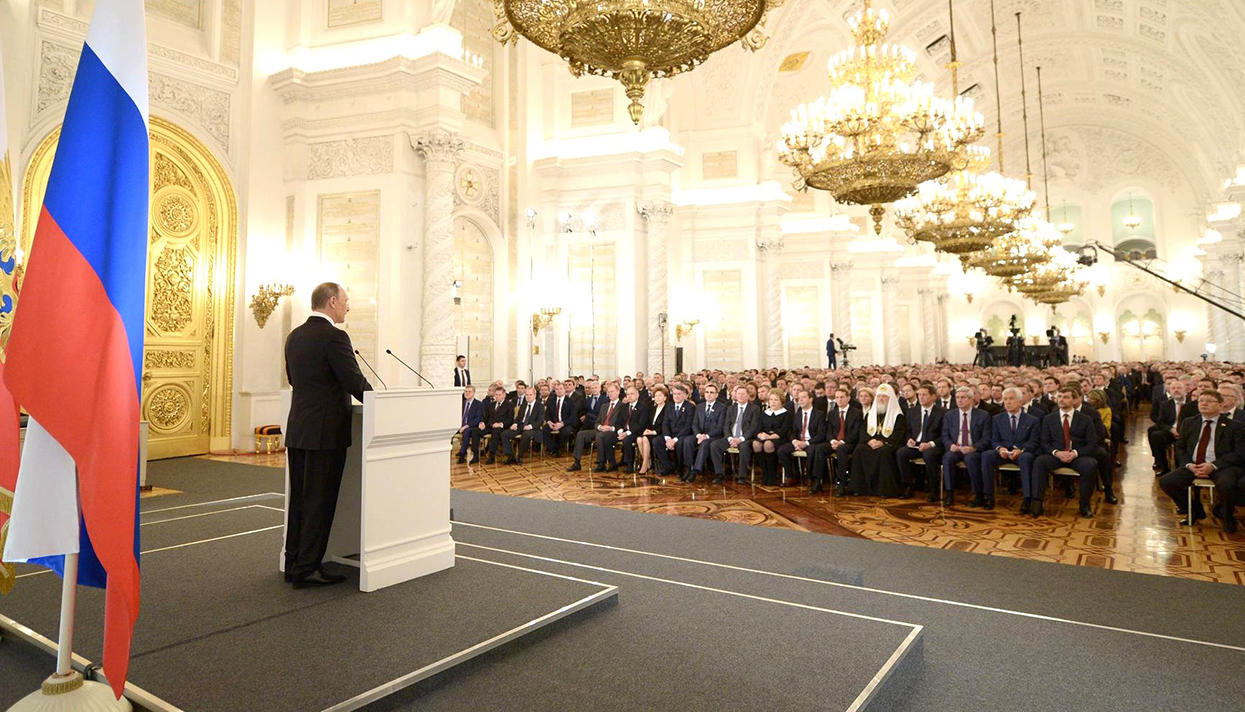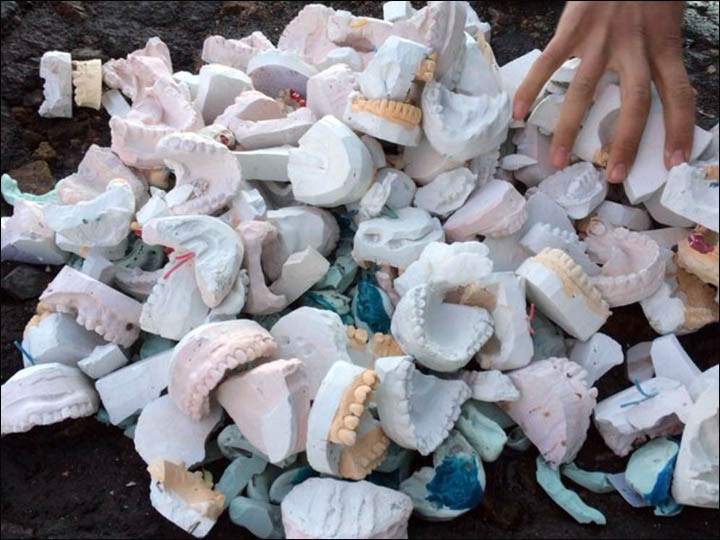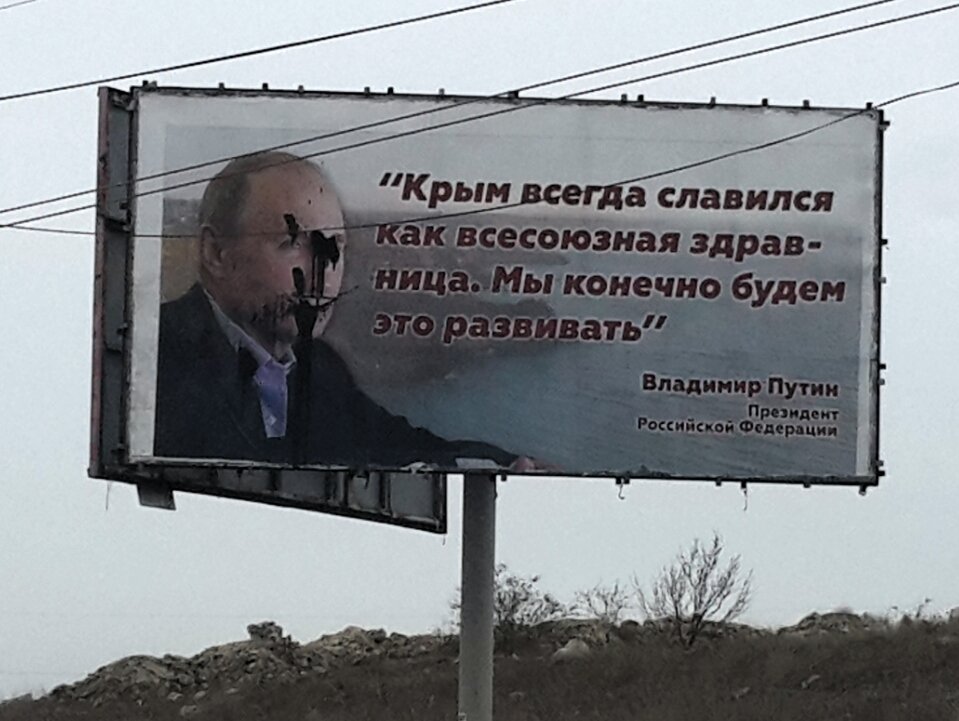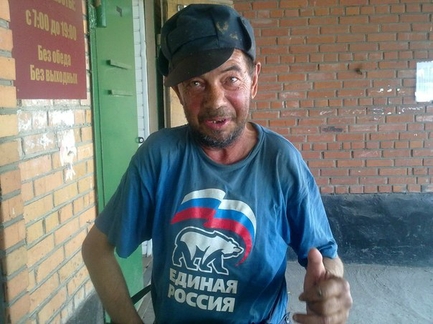One of the most powerful ideological memes of Soviet times was the notion that capitalism divided the population of any country into “two nations,” a small one possessing all the wealth and a huge one whose production was confiscated by the first for its benefit and not that of the people.
The term was lifted by Marxists from Benjamin Disraeli’s 1845 novel, “Sybil or the Two Nations,” a book that appeared in the same year as Friedrich Engels’ “The Condition of the Working Class in England in 1844,” a work that has had significant influence not only on Marxists but on others as well.
Now, some commentators in Russia are suggesting that their country as it has developed under the rule of Vladimir Putin has become one in which there are two peoples rather than one, a situation that is not only morally indefensible but dangerous as far as the future of their land is concerned.
Earlier this year, Moscow writer Mikhail Berg wrote in his blog that “we live in one country but we have two peoples,” a small number of “thinking people” who need “greater freedom and honest elections” and “an enormous mass” of those who have been intimidated into silent acquiescence or support of the current regime.
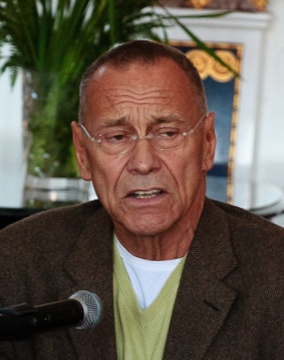
That idea has more recently been developed by film director Andrei Konchalovsky who has issued a cry of despair from someone who wants to be proud of his country and his people but finds that increasingly difficult as Russia slides into an unprecedented “demographic and moral” disaster.
Many are debating whether Russia is part of Europe or Asia, but in fact, he writes, “by the level of corruption, by life expectancy, and by the level of investment in science and the like,” Russia today has become as if “we are in Africa” and without the colonial experiences that long held that continent back.
To make his point, Konchalovsky provides a collection of devastating statistics that Russians seem all too ready to ignore. Among them are the following:
- Mortality in Russia: “Over the last 20 years, more than seven million Russians have died off … Every year, Russia loses as many people as the population of a whole oblast the size of Pskov [over 673 thousand people in 2010 census – Ed.]… The number of suicides, murders and accidents in Russia is comparable with the level of mortality in Angola and Burundi … Life expectancy of Russian men is approximately 160th among the countries of the world, just ahead of Bangladesh.”
- A Crisis in the Russian Family: “Eight of ten older Russians who live in homes for the elderly have relatives capable of supporting them … The country has from two to five million unsupervised children,” 100 times as many as China. “80 percent of the 370,000 children in orphanages having living parents … and we are first in the world in terms of the number of children abandoned by their parents.”
- Crimes against Children: In 2010, 1700 of every 100,000 children were raped or killed, a figure that is higher than “even in South Africa” and one that means that “every day in Russia four or five children are murdered. In the same year, there were 9500 sex crimes against minors, a figure exceeded only in South Africa.
- Drug Abuse and Alcoholism: 30,000 Russians die each year from overdoses of narcotics, and 70,000 from alcoholism directly. These figures compare with the loss of 14,000 Soviet soldiers in all the years of the Afghan war. Russians now consume 15 liters of pure alcohol annually, even though the WHO says that consuming 8 liters a year threatens the survival of the nation.
- Corruption: Corruption is so massive and so widespread that it surpasses this plague in any other country. The misuse of the courts has become tragic: now Russian courts are even prepared to try the dead, something that happened in Europe the last time in the 17th century when Oliver Cromwell was dug up and tried.
- Hollowing Out of the Country: “Over the last ten years, 11,000 villages and 290 cities in Siberia have disappeared,” opening the way for China and Japan whose population densities far exceed those of Russia east of the Urals. “For whom did we conquer and develop Siberia and the Kuriles? It turns out, it was for the Chinese or the Japanese,” Konchalovsky says.
- Rising Poverty: Despite its enormous natural wealth, “it is shamefully the case” that half of the Russian population consists of poor people.
These are horrific figures, the writer says, and he is “certain that Putin knows all these facts,” which prompts the questions: What does he think about them? And what is he prepared to do? Especially at a time when Russia is “approaching a demographic and moral catastrophe which it has never experienced before.”
There are many explanations for Russia’s sad state and current division into two nations, Konchalovsky continues. “The chief among them is the irresponsible economic policy of the 1990s” when “people with a feudal consciousness who never knew private property in land or capitalism’ and who had lost the spirit of entrepreneurship under 70 years of communist rule.
If only a third of Russians were to recognize this and stand up behind it, he suggests, “RUSSIA WOULD BE A DIFFERENT COUNTRY.” But unfortunately that has not happened. For it to occur, Konchalovsky says, “Russia needs a leader who would have the courage of Peter the Great to tell people words which they have not heard for a long time.”
Those words would convey “a bitter truth,” one that Russians must hear if they are to have any hope of moving forward because at present, the vast majority of Russians “do not want to understand how far they lag behind Europe in their civilizational development.”
“I understand,” Konchalovsky continues, “that the leader of the nation … cannot speak freely.” But now Russia faces a crisis that can be addressed only if he speaks the truth. And he adds that he “doesn’t know whether Vladimir Vladimirovich Putin is capable of such a suicidal act.”
“I am a Russian,” the film director says. “I pine for my Motherland, but I ‘don’t see’ her! I do not see a country in which I can take pride. I see only crowds of dissatisfied and angry people so alienated from one another that they fear each other” rather than being willing to work together.
“I want to be proud of my Motherland,” he concludes, “but I am ashamed of what it has become.” He adds that he can’t remember the last time he felt pride in it but can assure everyone that it wasn’t when the Russian hockey team won at the Sochi Olympiad.
Related:
- Experts: Putin killing Russians and Russia’s future by cutting vodka prices
- Andrei Piontkovsky: Putin’s net worth estimated at over $100 Billion
- Russian aggression in Ukraine reflects major demographic considerations
- Russian Stalinists recognize Putin as one of their own
- Russia suffering staggering indirect human losses from its wars, retired colonel says
- Moscow commentator: Russia in far worse shape than most assume
- HIV/AIDS epidemic in Russia ‘out of control,’ health minister says
- The tale of the boiling frog
- Ten reasons Putin system may not be as ‘sustainable’ as many now think




